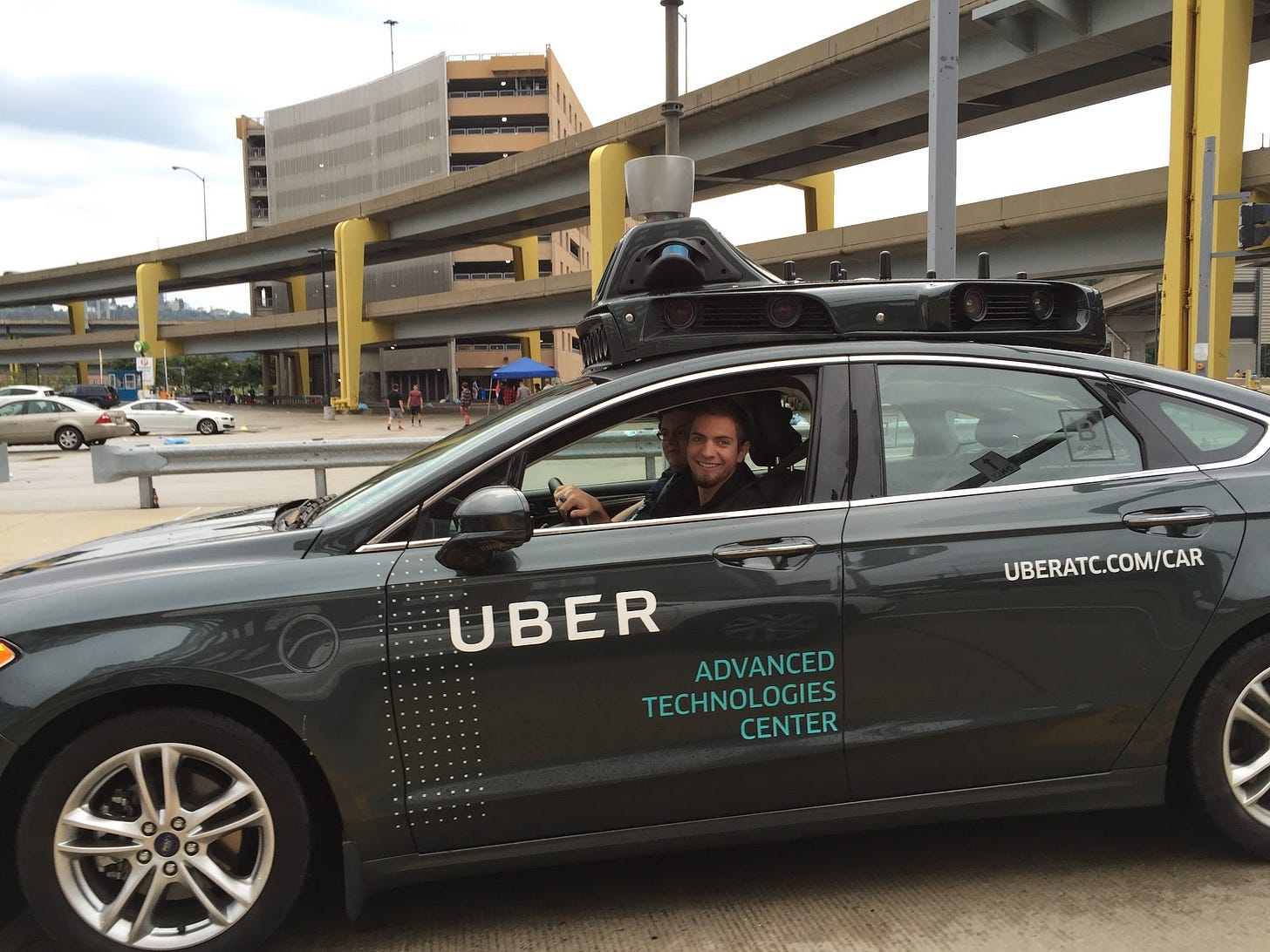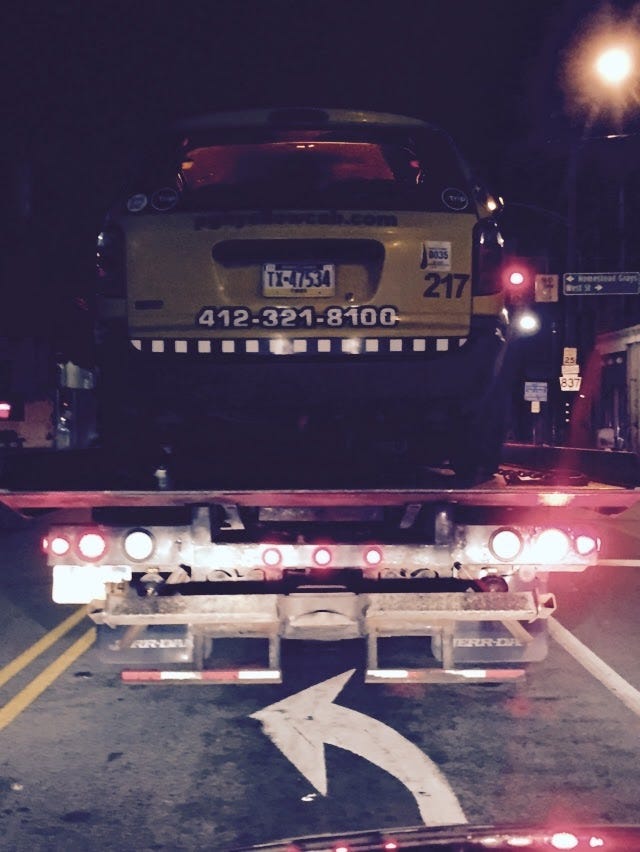In defense of Uber, again
Substack superstar Matthew Yglesias has written "Ride-sharing apps are good, actually," which is something I cried 10 years ago in as many places as possible. Here is my comment to Yglesias.
As of about noon on Monday, there were nearly 400 comments to Yglesias’ thoughtful piece, in which he explains why he has finally come to the realization that Uber is good and the old taxi monopolies were bad.
“App-based ride hailing is not a solution to systemic problems with American land use and transportation policy, but it has had a genuinely large and overwhelmingly positive impact on American life in ways that absolutely do relate to the underlying technology.
“Yet it’s also true that the regulatory arbitrage aspect of this is a big deal. It used to be the case that taxi markets were cozy cartels with high margins and extremely limited supply. Outside of a handful of dense cities, the whole model was built around bilking visitors traveling to and from the airport.
“What’s sobering, though, is the fact that to some people, this successful act of regulatory arbitrage doesn’t show that the old taxi cartels were bad — it shows that Uber is bad.” — Matthew Yglesias
My defense
Many of the comments to Yglesias’ substack item showed how little most people still know about the workings and social benefits of Uber and the evils of the dead legacy taxicab rackets that tortured people in America’s cities for more than 80 years.
I haven’t had to defend Uber from its enemies lately, but I couldn’t help myself.
Glad to see Matthew has discovered, kind of, the social value of Uber.
From 2015 to 2020, when the lockdowns put me out of business, I was a happy part-time Uber driver in Pittsburgh: 7,000 rides, about 11,000 passengers, heart transplant surgeons to strippers. I've written a lot about my experiences -- https://clips.substack.com/p/st-patricks-day-is -- and, as a libertarian ex-newspaperman and op-ed column writer, I was an early and active defender of Uber.
First, it was because I was thrilled to see that Uber was in the process of destroying the evil, usually racist, always politically connected, often corrupt, lucrative, government-protected taxicab monopolies that had been merrily screwing people in every major city for at least 80 years with high prices, terrible service and crappy cabs.
All the usual liberal national media suspects automatically hated Uber by 2015 -- the NYT, the WaPo, NPR, et al. -- and the local media in virtually every city greeted Uber and Lyft not as liberators but as lawless, dangerous disrupters of the peace.
(In NYC, all you had to do to get a cab was raise your arm; in Pittsburgh hailing a cab to pick you up on the street was, literally, illegal and getting a cab to come to your house in a poor or suburban neighborhood was a long wait that often never ended positively. Pittsburgh's horrible cab 'service' was not an anomaly among cities. https://clips.substack.com/p/when-yellow-cab-ruled-pittsburgh)
Local journalists -- and national ones -- showed no interest in exposing how bad the existing pre-Uber taxi business was for their cities (even though everyone in town knew they sucked).
They had no idea who the monopoly cabs hurt everyday -- poor people, blacks, college students, suburbanites, late-night revelers; anyone who wasn't going to or from the airport and downtown, mainly. (In 1995 there were about 200 cabs for 1.2 million Pittsburghers; today there are probably 5,000-plus full- and part-time Uber/Lyft drivers).
Journalists also had zero idea how hard it was to start a taxi company -- or even thought that that was a problem. Existing monopolies were protected by state laws in states like Pa. The same economically challenged journalists and 'pundits,' who blindly romanticized Yellow Cabs and their many shortcomings, also railed about Uber's real and imagined dangers (anyone could be a driver; what about criminals and molesters and insurance? etc. etc.) and reported every bad Uber incident like it was a triple murder.
My fellow journalists especially focused on how awful it was that Uber was breaking the local laws that protected the local taxi monopoly from any competition while simultaneously poorly regulating it; in virtually every city in America, cabs sucked. Calling them 'cosy cartels' is a euphemism only someone from NYC or DC could use.
The local Yellow Cabs were textbook local monopolies and misbehaved like monopolies in their cities for 80 years until Uber/Lyft came along and liberated their populations.
I've written a lot about the existing cab monopoly in Pittsburgh and how Uber made the city safer and better -- especially for all the everyday people (of every age and class and lifestyle) who would never call Pittsburgh's Yellow Cab Co. a 'cosy cartel.' https://clips.substack.com/p/st-patricks-day-is
Uber’s steady financial climb from big money loser to profitability continues. The results of the second quarter were good and the company is rolling in cash.



